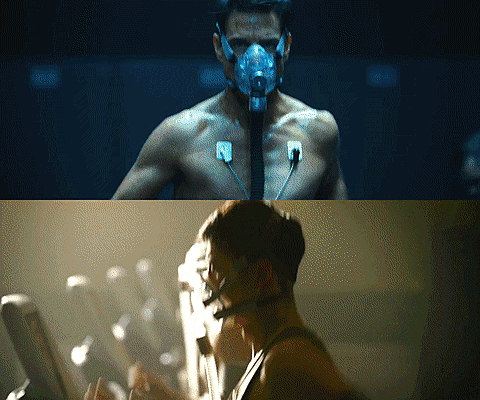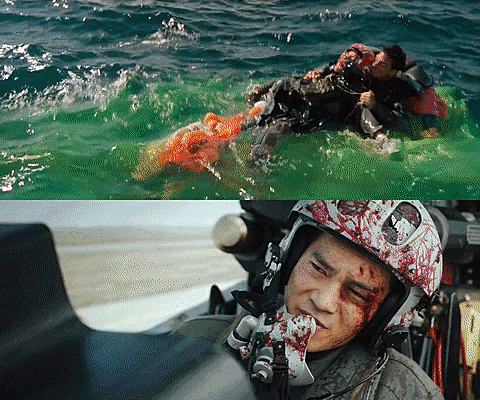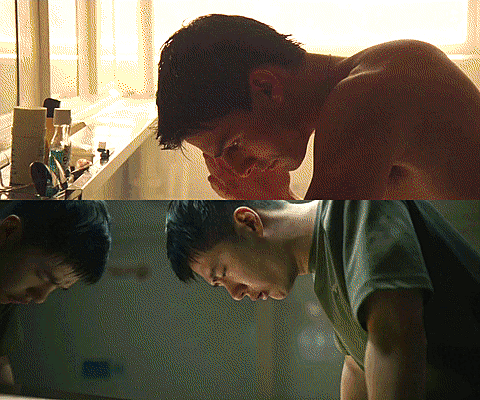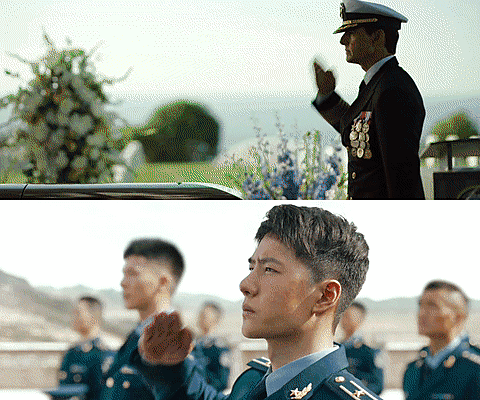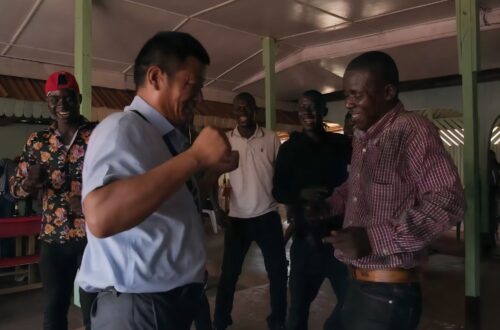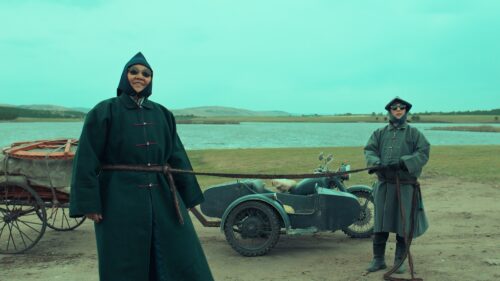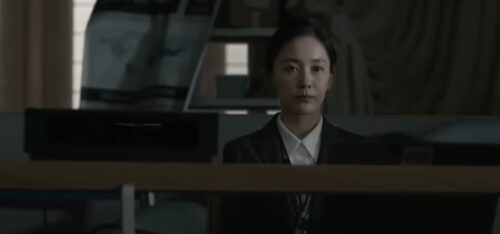Review: ‘Born to Fly,’ China’s heavy-handed ‘Top Gun’ knockoff
Caught between a bare-bones script, bland visuals, and bellicose nationalism, the story of China’s elite test pilots is destined to crash and burn.
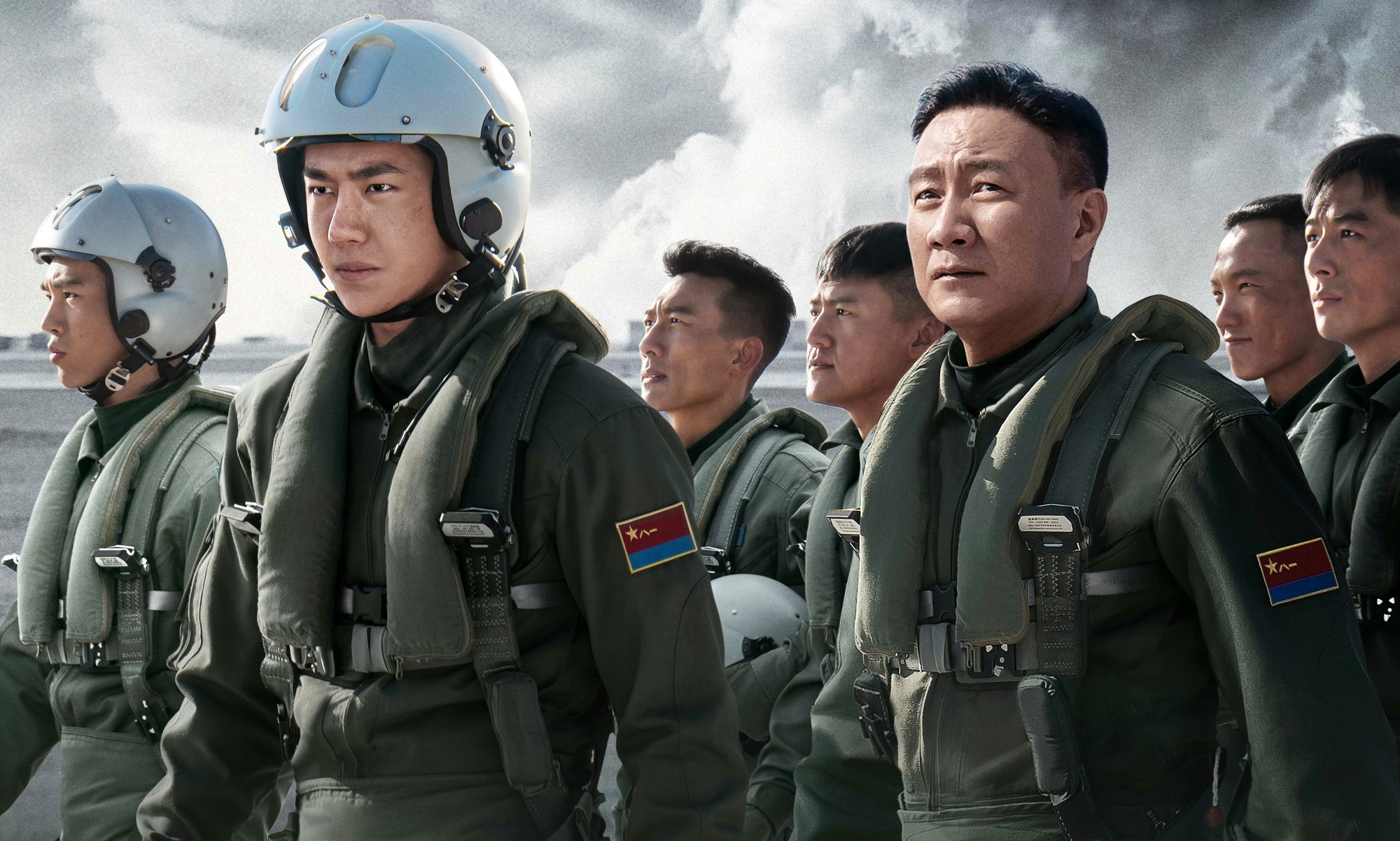
After a seven-month delay since its originally planned release last year, Born to Fly finally landed in cinemas in China and North America last month. The highly anticipated film was previously postponed because authorities in Beijing reportedly feared that its “inferior” visual effects “risked ridicule in comparison” with last year’s worldwide box office sensation, Top Gun: Maverick.
The concerns were legitimate. From its plot structure and setting to specific shots, such as flying upside-down over an opponent’s aircraft in the opening sequence, Born to Fly is clearly a second-rate knockoff of Tony Scott’s 1986 Top Gun. After a skirmish with the “enemy” pilots and their cutting-edge fourth-generation jets that leave him in the dust, a maverick pilot, Lei Yu (played by Wáng Yībó 王一博, Hidden Blade), is recruited to test China’s latest stealth jets.
Now-deleted comparison GIFs posted on @院线电影资料库 Weibo account.
But he’s only one out of a dozen other hotshots who’re all trying to prove their worth to their higher-up, Zhang Ting, a veteran test pilot played by Hú Jūn 胡军 (Stanley Kwan’s queer classic Lan Yu). Lei Yu’s biggest competitor, a.k.a. his Iceman, is Deng Fang (于适 Yú Shì), a thinly written character who lacks distinct qualities. Through rigorous physical and technical training, they tussle for the same prize — collecting the best possible flight data in order to help build China’s best stealth jet.
If that sounds rather boring, it’s because it is. First-time director Liú Xiǎoshì 刘晓世 has been making documentary films and promotion videos for the Aviation Industry Corporation of China for the past 15 years. Devoid of much cinematic quality, Born to Fly plays like an ungainly culmination of this career. Liu co-wrote the film with Guì Guàn 桂冠, another feature film debutant, inserting silly tasteless jokes in a script that’s pared down to the bone. When in one scene Lei Yu mentions that he’s afraid of dogs because he was attacked by one as a child, his bunkmate replies that he’s afraid of them because his girlfriend was born in the Year of the Dog.
After a purported CGI revamp, the resulting visuals of the aerial ballets are uneven at best, ranging from well polished to somewhat jarring to downright awful. During flight scenes, the frames rarely dare to last longer than three seconds, and when they do, the cinematographer resorts to slow motion. A bigger problem with the film’s look, however, is that it’s simply too bland. From the military greens to the landscape yellows to the metallic grays, Born to Fly lacks the crisp camerawork and color grading that have long become a staple of big-budget Chinese productions.
Liu’s film is also as sexless as it can be. (At least it didn’t copy its Hollywood predecessor in this regard.) The closest character to a romantic interest is Shen Tianran (Zhōu Dōngyǔ 周冬雨, Better Days), a one-dimensional military medic that could have been written out of the story without any narrative loss. The lack of chemistry between Wang and Zhou is glaringly obvious. While Wang adeptly handled his role as a phlegmatic poet in the Berlinale-qualifying short All Tomorrow’s Parties, the former pop star lacks the charisma to sustain a feature-length film. There are no romantic motorcycle rides or shirtless beach volleyball games in this two-hour promotion video made with the support of the People’s Liberation Army’s air force. To be fair, Born to Fly inherits many of its faults from the film it was modeled on. But even those who dismiss Top Gun as a recruitment poster for the U.S. military tend to enjoy its simpler fun and charms.
Born to Fly is cut from the same cloth as other Chinese nationalistic blockbusters, with a heavy dose of maudlin sentimentalism and preachy didacticism. Its tear-jerking moments are crude but, credit where it’s due, effective, largely thanks to a tenacious performance from Hu Jun. The prolific actor has become something of a Chinese Sean Bean, whose main mission is to die violently and valiantly in patriotic productions (think 2022 domestic box office champion The Battle at Lake Changjin II). Liu’s film overrelies on verbal exposition full of technical details, leading to wooden dialogues about the importance of a high-quality engine in building a sensible jet.
Born to Fly goes to great lengths to portray China as an underdog vis-à-vis technologically advanced nations. Multiple times throughout the film, the characters bring up how these (unnamed) powerful countries are trying to “make [China] cave in” through a “tech blockade” and a “containment policy.” Lei Yu explicitly states early on in the film that his motivation in becoming a test pilot is taking “revenge” on “foreign invaders.” The only representation of these “external forces” appear in the film’s first and last sequences in the form of faceless English-speaking pilots who fly into China’s airspace. “We’ll come and go whenever we like,” sneer the intruders, one of whom is ironically played by a Russian actor.
The filmmakers have these “enemy” pilots open fire first, justifying their Chinese counterparts subsequently blasting two jets in the sky. The last aircraft is allowed to escape in a clumsy attempt to emphasize how China only attacks in self-defense. It is one thing to display such gung-ho nationalism in films about the Korean War, set more than 70 years ago. But to do it in present-day stories such as Born to Fly hints at an unsettling mentality.
Born to Fly is screening in select theaters in the U.S. and Canada starting April 28.
